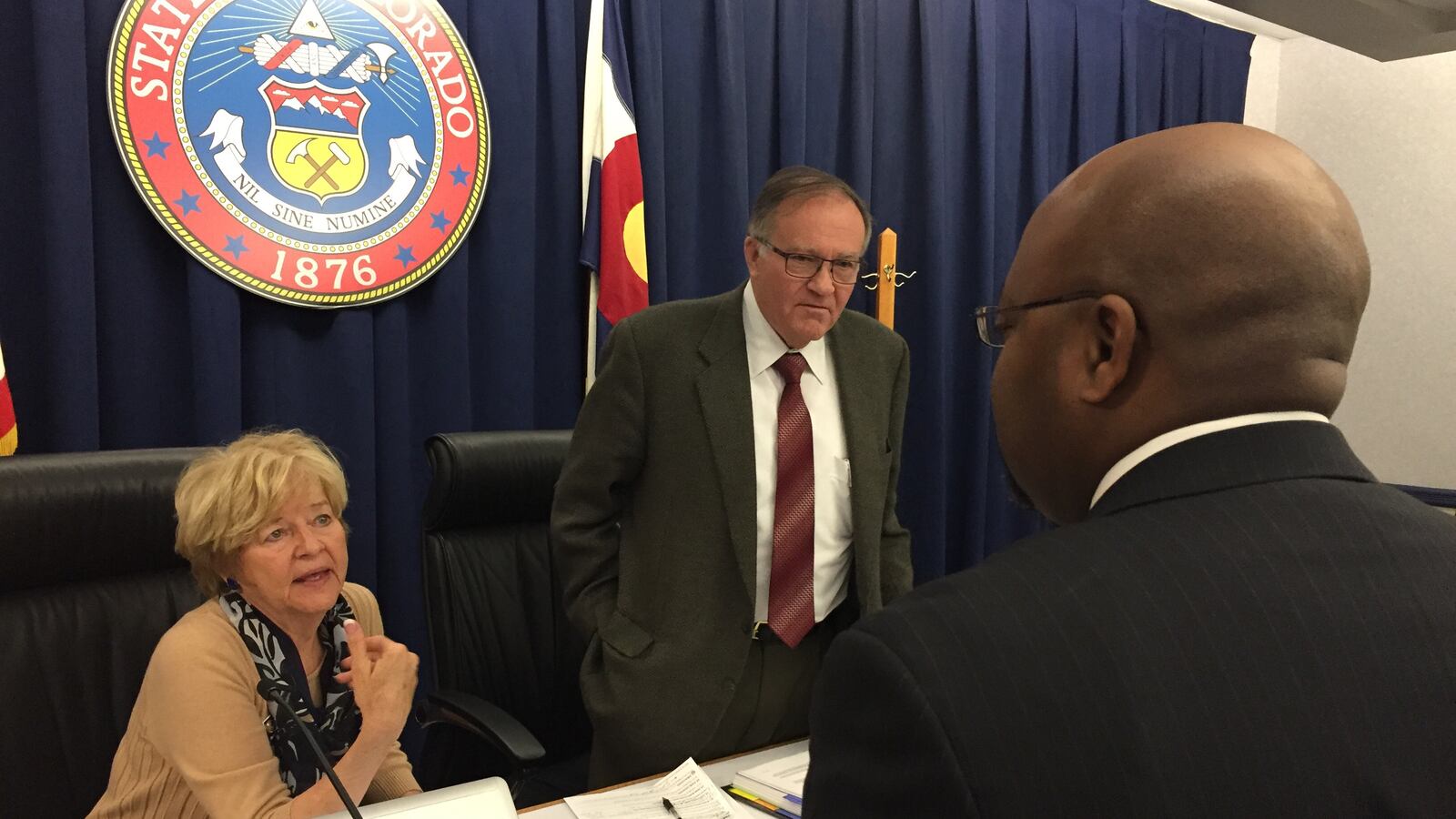The State Board of Education on Wednesday approved dramatic overhauls for five Aurora public schools, freeing them from a litany of local and state policies in an effort to boost student achievement that has languished behind the rest of the state.
The board’s approval was a major win for Aurora Superintendent Rico Munn’s school reform agenda, even as several board members raised concerns that the plans do not go far enough.
Wednesday’s meeting also set up a new debate about how to address dozens of failing Colorado schools that have reached the end of the state’s accountability timeline. State law allows the board to suggest failing schools be closed, redesigned or turned into charter schools.
Aurora Central High has been on the state list for chronic low performance for five years and faces sanctions next year. Two other Aurora schools — Boston K8 and Paris Elementary — are also on the timeline but are several years away from facing sanctions.
Munn’s redesign plans pertain to the schools on the timeline, plus Aurora West Collegiate Preparatory Academy and Crawford Elementary.
The plans are partly an effort by Aurora to stave off state sanctions.
However, the State Board of Education made clear it isn’t ready to say whether the plan for Aurora Central will be enough to prevent further action.
Instead, the board unanimously approved the plans under the state’s innovation law, which only requires the board to attest the changes won’t decrease student achievement and are fiscally viable.
Munn told the board he believes the changes, especially those at Aurora Central, will improve student achievement and meet any future requirements the board might set for schools on its watch list.
“We are very confident that these plans will meet that standard, although we know that standard doesn’t exist yet,” Munn said.
The State Board has only just begun to determine how it will hand out sanctions to schools on the state’s timeline. Part of that process is deciding how it will evaluate the quality of proposed innovation plans.
As for the plans approved Wednesday, major changes at all five Aurora schools will include a longer school day and year, more and different training for teachers, and more individualized and project-based learning for students. Parents will also be engaged in new ways, students will have more after-school opportunities and the schools will focus on building global leadership skills for their growing immigrant and refugee populations.
Board members Val Flores, D-Denver, and Deb Scheffel, R-Parker, voiced concern that the plans wouldn’t do enough for English language learners. Both said they found some parts of the plan confusing.
“I don’t see how you’re attacking reading,” Scheffel said.
Flores said she felt the district might be trying to make too many changes with too many outside partners. That could send mixed messages, she said.
“I can’t get it in my head what you’re going to do and how it’s going to cohere,” Flores said.
Munn responded that his schools are committed to literacy instruction and said the way the district teaches its English language learners is governed by the federal government and can’t be waived by the State Board. He added that his district has vetted all of its partners, such as the principal training programs Relay Schools and the International Studies Schools Network, to make sure their missions align to the district’s plans.
The board’s approval caps a 14-month process for Munn and the five schools.
Munn first pitched the idea for the overhauls in March 2015. His plan was met with equal parts enthusiasm and skepticism. Last June, the State Board applauded Munn for being proactive in making changes.
At times this spring, it seemed as if everything would fall apart — especially at Aurora Central and Aurora West, where teachers raised concerns over their employment rights. But Munn’s team, including principals at the five schools, ushered the plans through the lengthy process to the State Board.
After the State Board granted its approval, those principals and some staff members gathered in the hall of the Colorado Department of Education
Paris Elementary Principal Tammy Stewart was smiling.
“I’m really excited for the kids,” she said.

